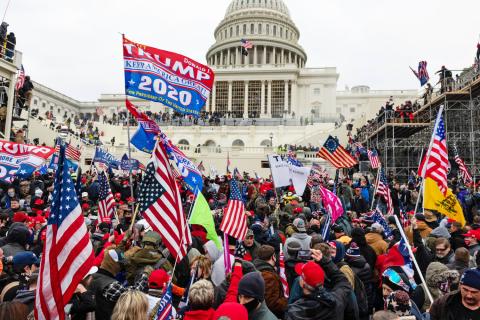Democracy’s crisis of faith
When I bring this up with people of a certain age, they often recall the 1970s. Then, too, Western democracies looked exhausted. In the U.S., inflation, Vietnam and Watergate had eroded public confidence. Samuel Huntington warned about the "governability” of democracy. Daniel Bell saw capitalism corroding the virtues that sustained it.
Yet in the 1980s, things turned around. Economic reform and technological dynamism restored faith. Within a decade, communism collapsed and liberal democracy stood triumphant. The crisis of the 1970s proved to be a prelude to renewal. But today’s malaise feels different — and deeper. The earlier crisis was managerial. Governments performed poorly, but people still believed in the system. The Supreme Court was respected, Congress functional, the press authoritative. People wanted the rules enforced; now, they don’t believe in the rules.
Today, America’s central institutions — courts, media, universities, even elections — are widely viewed as biased. Trust in government has fallen to around 20 percent; congressional approval often hovers in the teens. The media is trusted by fewer than a third of Americans, down from nearly three-quarters in the 1970s. The issue is not competence but cohesion and trust.
Institutions once commanded respect because they seemed impersonal and rule-bound. Today, they are seen as political actors.
In the first episode of Michael Lewis’s brilliant podcast “Against the Rules,” he talked about how in sports, fans shout “Ref, you suck!” even though officiating is as accurate as ever. The problem isn’t performance; it’s perception. Once people decide the ref is biased, no amount of precision restores trust. The same story plays out in law, journalism and politics. When referees are opaque or distrusted, the entire contest feels illegitimate.
Lewis’s point explains why accountability alone doesn’t fix democracy. More transparency can make bias more visible, feeding rather than curing cynicism.
This helps explain the peculiar appeal of Donald Trump. He has abandoned the pretense of neutrality altogether as president. He acts personally, politically, even punitively — and does so openly. To his supporters, that candor is disarming. If all institutions are biased, better an avowed partisan than a hypocrite claiming neutrality.
A 2023 study by Sung In Kim and Peter A. Hall confirms this pattern: When citizens perceive the system as unfair or biased, they shift preference from neutral process to direct, personalized rule. Leaders who present themselves as fighters rather than referees — who attack courts, media outlets and bureaucracies — gain credibility precisely because they reject the system’s pretense of fairness.
Trump’s rise also exposes a deeper divide between left and right populisms. Kim and Hall find that when people see unfairness as personal — my job, my income, my future are unfair — they turn to right-wing populists, whose rhetoric frames their pain as betrayal by elites and outsiders. When they see unfairness as social — society treats others unfairly — they gravitate to left populists, who promise redistribution.
In recent years, the shocks that most unsettle people — deindustrialization, automation, migration, secularization — generate a sense of personal rather than social unfairness. Workers fear being replaced, not merely that others are poor. That fear produces anger and fits naturally with the right’s narrative against migrants and in favor of protection, borders and national revival. Left populists call for solidarity; right populists promise vengeance. In anxious societies, vengeance is the easier appeal. Add to this a decades-long campaign on the right to discredit America’s basic institutions — from bureaucracies to the press — and trust has eroded just as intended.
The 1970s crisis ended when leaders set about making democracy deliver. The people had doubted government competence but not its legitimacy. Today’s challenge is moral, not managerial. Institutions still function, but they have lost their aura of fairness. When citizens no longer trust the referees, they stop obeying the rules. Every election becomes a civil war by other means. Truth itself becomes tribal.
We have entered democracy’s post-referee age: a world where institutions are disbelieved, impartiality mocked and citizens choose sides not by policy but by identity. The 1970s crisis produced a revival once people decided democracy was worth repairing. Ours will end only when we decide it is worth believing again.
Fifty years ago, people doubted their governments. Today, they doubt each other. The next democratic revival will not come from clever managers or technocratic reforms. It will come from a rediscovery of trust — the invisible rule that makes all others possible. Until we can believe again that the referee is trying to be fair, we will keep shouting “Ref, you suck!” at our own democracy — and then wonder why the game no longer feels worth playing.
Fareed Zakaria

